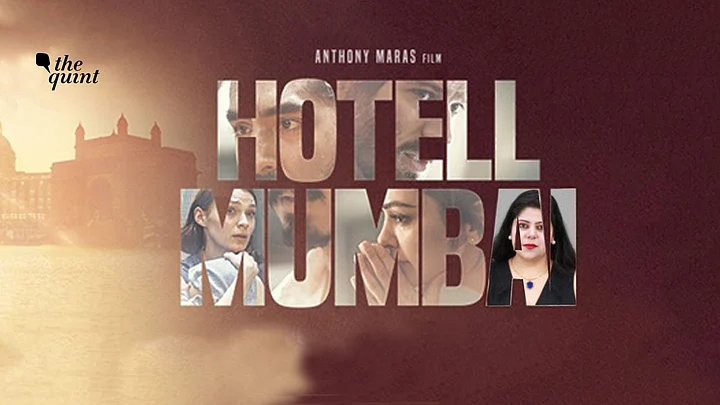The problem with films based on real life events is that one is already aware of how things will pan out. And so, the challenge lies in keeping us invested in the story. In this respect, Hotel Mumbai excels. We plunge headlong into the events that led to the dastardly terrorist attacks on Mumbai in 2008, and director Anthony Maras – who has also written the screenplay along with John Collee – keeps his hold on the narrative steady and focused .
The cold efficiency with which violence is depicted and how it disrupts the rhythm of everyday life in the busy lanes of Mumbai has an accompanying foreboding tone that is hard to ignore.
Even as the background music is kept to the minimum, the unmissable sound of ricocheting bullets keeps us at the edge of our seats. A casual conversation between two people is suddenly disrupted as one of them drops dead.
Click on the player below to listen to the podcast!
The careful food plating session in a busy kitchen at the Taj Mahal Palace Hotel is abruptly juxtaposed with scenes of absolute mayhem and mindless killing. Bodies are strewn around haphazardly, blood is everywhere, and as the action firmly shifts to the majestic interiors of the iconic hotel, which bore witness to horrific scenes of death and devastation, the clash between the various scenes and tonalities only adds to the dizzying urgency.
For most of us, the memories of 26/11 are still fresh in our minds even 11 years on. We were glued to our TV sets as we followed the tense moments of the crisis; and so the use of real-time footage is both clever and hugely impactful. In fact, the film even manages to astutely show the many lapses in security that happened due to the live coverage of the attack by media. The gaze is democratic.
We have a 3D perspective on the terrorists hypnotised by dangerous religious bigotry; how ill-equipped the authorities were taken completely by surprise by the enormity of the attack; and the stories of absolute courage and valour in the face of certain death.
Dev Patel is in the role of a sincere hotel staffer working under the guidance of the head chef Oberoi (Anupam Kher), whose character is based on the Taj Hotel’s former Grand Executive Chef Hemant Oberoi. The film depicts the exemplary work ethics of the staff as they do everything in their capacity to help rescue their guests. Both Patel and Kher are remarkably restrained and supremely convincing. The guests in the hotel, especially the foreign nationals get considerable screen time. Armie Hammer and Nazanin Boniadi as a couple with a small child and nanny (Tilda Cobham-Hervey) caught in the crossfire, and an ex-Russian Special Forces agent played with relish by Jason Isaacs are welcome additions.
Overall, Hotel Mumbai isn’t an easy watch in the sense that it does bring back some very painful memories; but cinematically it is a solid and gritty retelling of an extremely tragic moment in our recent history. 4 Quints out of 5!
(At The Quint, we question everything. Play an active role in shaping our journalism by becoming a member today.)
